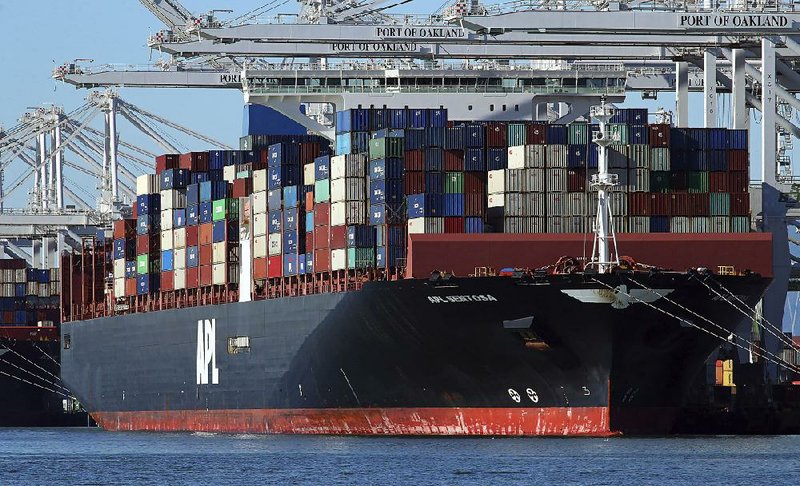WASHINGTON -- The U.S. trade deficit fell 11.5 percent in November to the lowest level since June.
The Commerce Department said Wednesday that the gap between what the United States sells and what it buys from other countries dropped to $49.3 billion from a revised $55.7 billion in October. American exports fell 0.6 percent to $209.9 billion, but imports fell faster, dropping 2.9 percent to $259.2 billion.
The deficit with China in the trade of goods such as cars and cellphones fell 7.3 percent to $35.4 billion.
Treasury Secretary Steven Mnuchin said Wednesday that there are no plans yet for President Donald Trump and Chinese President Xi Jinping to meet soon in the hope of finalizing a trade deal, though Mnuchin plans to travel to China's capital next week to continue the negotiations.
Trump campaigned on a pledge to slash America's trade deficit with the rest of the world and has imposed import taxes on foreign steel, aluminum and Chinese products.
But the January-November 2018 deficit was still up 9 percent from a year earlier.
The U.S. ran a $71.6 billion deficit in the trade of goods, down from $78.3 billion in October. It ran a surplus of $22.3 billion in trade of services such as banking and tourism, down from $22.6 billion in October.
The report helps fill in a key data gap caused by the five-week partial government shutdown, showing how net exports will affect the reading of economic growth in the fourth quarter. In the period before, trade was the biggest drag in three decades.
The report, originally scheduled for Jan. 8, was delayed by the shutdown because the Commerce Department was closed. The preliminary report on the merchandise-trade balance, originally set for Dec. 28, was canceled because of the shutdown.
Trump sees the lopsided trade numbers as a sign of U.S. economic weakness and as the result of bad trade deals and abusive practices by U.S. trading partners, especially China.
Mainstream economists view trade deficits as the result of an economic reality unlikely to yield to changes in trade policy: Americans buy more than they produce, and imports fill the gap. The strong U.S. economy also encourages Americans to buy more foreign products.
U.S. exports are also hurt by the American dollar's role as the world's currency. The dollar is usually in high demand because it is used in so many global transactions. That means the dollar is persistently strong, raising prices of U.S. products and putting American companies at a disadvantage in foreign markets.
The latest figures suggest tariffs may be weighing on trade, as imports of Chinese goods fell by about $3 billion in November to $42.8 billion. In addition, levies on items from other countries, including aluminum and steel, may be weighing on business, with firms being forced to absorb higher prices or pass those costs on to customers.
The data also reflect the outlook in November, when companies expected U.S. tariffs to rise for $200 billion of Chinese goods effective Jan. 1; that increase has since been delayed until March 1 as the U.S. and China try to resolve their differences on trade.
Mnuchin and U.S. Trade Representative Robert Lighthizer are leading a team to Beijing next week to continue the negotiations.
"I can tell you there's nothing planned at this time for it, but the president has talked about potentially meeting with President Xi and we'll see what progress we make next week," Mnuchin said Wednesday.
Trump has said a comprehensive agreement is unlikely to be signed until he meets with his Chinese counterpart.
Trump and Xi last met in December in Argentina.
Mnuchin said officials were focused on next week's talks and on meeting the deadline.
Trump is involved in the negotiations "in a very detailed way," Mnuchin said, receiving weekly and sometimes daily updates from the economic team.
Information for this article was contributed by Paul Wiseman and Darlene Superville of The Associated Press and by Katia Dmitrieva and Kristy Scheuble of Bloomberg News.
Business on 02/07/2019
